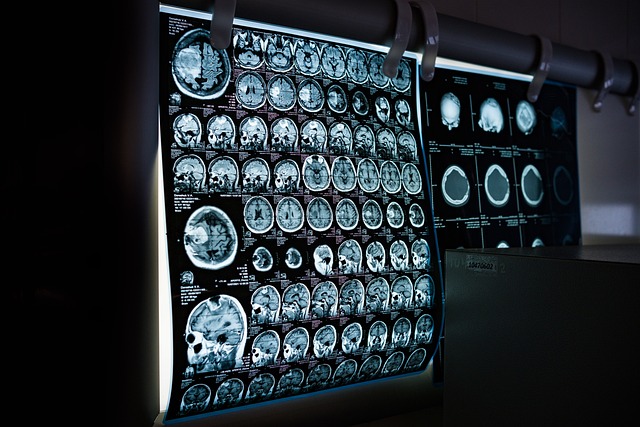Photo by Udo Voigt from Pixabay
Dementia is a condition that has many unknowns. While a cure is still not available, patients, doctors, and caregivers are still searching for ways to cope with the side effects. From memory loss to impaired judgment, those with dementia find even the simplest tasks become a burden. Discover to how assess pain with dementia, and some tips that could help your loved ones during these difficult times.
Table of Contents
Does Dementia Cause Pain?

Image by Dmitriy Gutarev from Pixabay
The first question you have to ask yourself when trying to assess pain with dementia is, “does dementia cause pain”. Dementia itself does not directly cause pain, as it is a neurological condition that affects cognitive functions such as memory, language, and reasoning. However, people with dementia may experience pain as a result of other underlying health conditions, such as arthritis, injuries, infections, or other medical conditions.
Why Does Pain in Dementia Patients Go Untreated?
In addition, people with dementia may have difficulty expressing their pain or recognizing when they are in pain, which can make it challenging for caregivers and healthcare providers to identify and treat pain effectively. Therefore, it is important to monitor the behavior and communication of people with dementia closely for signs of discomfort or pain, and to work with healthcare professionals to manage any pain that may arise.
How to Assess Pain With Dementia

Image by Gerd Altmann from Pixabay
Assessing pain in people with dementia can be challenging, as they may have difficulty expressing their pain or communicating their symptoms effectively. However, there are several strategies that caregivers and healthcare providers can use to assess pain in people with dementia, including:
Observe Behavior
Pay attention to changes in behavior, such as increased agitation, restlessness, crying, or facial expressions of pain or discomfort. People with dementia may have physical signs of pain, such as changes in heart rate, blood pressure, or breathing patterns.
Ask Questions
Although people with dementia may have difficulty communicating their pain, they may be able to respond to simple questions, such as “Are you in pain?” or “Where does it hurt?”
Consider Medical History
People with dementia may have underlying medical conditions that could be causing pain, so it’s important to consider their medical history and any previous health concerns.
It’s important to remember that assessing pain in people with dementia may require a multifaceted approach, and that it may take time and patience to identify and manage pain effectively.
Tools to Identify Pain With Dementia
While no technology exists to properly translate pain to care providers, there are several pain assessment tools available that can help assess pain in people with dementia. These tools that identify pain include…
Pain Assessment in Advanced Dementia (PAINAD) Scale – The Pain Assessment in Advanced Dementia (PAINAD) Scale is a tool used to assess pain in people with advanced dementia who may have difficulty expressing their symptoms or communicating their pain. The scale includes five categories of observable behaviors that may indicate pain: breathing, vocalization, facial expression, body language, and consolability.
Abbey Pain Scale – The Abbey Pain Scale has been found to be a reliable and valid tool for assessing pain in people with dementia. The scale was developed by healthcare professionals in the UK and includes six categories of observable behaviors that may indicate pain: vocalization, facial expression, body language, behavior patterns, physiological indicators, and physical changes. Each category is assigned a score from 0 to 3, with a maximum possible score of 18. A higher score indicates a greater likelihood of pain.
Pain Relief Tips for Dementia Patients

Managing pain in people with dementia can be challenging, as they may have difficulty communicating their symptoms and may be more sensitive to certain medications. However, there are several strategies that caregivers and healthcare providers can use to provide pain relief for people with dementia, including:
Non-medical approaches: Non-pharmacological approaches, such as massage, physical therapy, and relaxation techniques, can help reduce pain and improve comfort for people with dementia.
Medications: Medications such as acetaminophen and nonsteroidal anti-inflammatory drugs (NSAIDs) may be effective for managing pain in people with dementia, but it’s important to use these medications cautiously, as they may have side effects.
Evaluate current medications:People with dementia may be taking multiple medications, some of which may contribute to pain or discomfort. Working with healthcare providers to evaluate current medications and make adjustments as needed can help improve pain management.
Consider the environment: People with dementia may be more sensitive to environmental factors such as noise, light, and temperature, which can exacerbate pain. Creating a comfortable and calming environment can help reduce pain and improve overall well-being.
It’s important to work closely with healthcare providers to manage pain effectively in people with dementia, as individualized approaches may be necessary. With appropriate care and management, people with dementia can experience improved comfort and quality of life. If you’re not sure how to assess pain in your loved one diagnosed with dementia, it may be time to consider extra help. Refer to our article, What to do when You can No Longer Care for an Elderly Loved One.
Help With Dementia Pain in Southeast Michigan
There are facilities equipped to help those with dementia. Known as Memory Care Centers, these specialized assisted living facilities are staffed by nurses, doctors, and attendants and understand dementia and can provide a high quality of life. If you are looking for memory care in Southeast Michigan, schedule a visit with Suncrest Senior Living, a small-group assisted living center with several locations in the Metro Detroit area.
*This article contains partial AI-generated content
To get in touch with Suncrest Senior Living please complete the form below:
CONTACT A SUNCREST SENIOR CARE SPECIALIST
PHONE: (248) 207-5378


